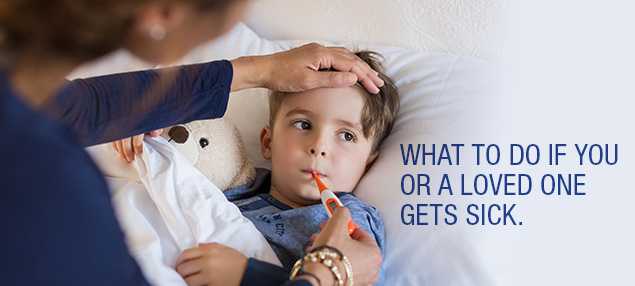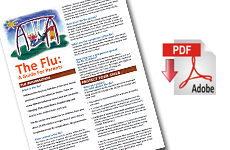Caring for Someone Sick
Get immediate medical care if the sick person experiences:
- Difficulty breathing or shortness of breath
- Purple or blue discoloration of the lips
- Pain or pressure in the chest or abdomen
- Sudden dizziness
- Confusion
- Severe or persistent vomiting
- Seizures
- Flu-like symptoms that improve but then return with fever and worse cough
Steps to Take if You Get the Flu
- If you get very sick, are pregnant, or are 65 years or older, or are otherwise at high risk of flu-related complications, call your doctor. You might need antiviral drugs to treat flu.
- Stay at home and rest.
- Avoid close contact with well people in your house so you won’t make them sick.
- Drink plenty of water and other clear liquids to prevent fluid loss (dehydration).
When caring for people who have the flu:
- Avoid being face to face with the sick person. If possible, it is best to spend the least amount of time in close contact with a sick person.
- When holding sick children, place their chin on your shoulder so they will not cough in your face.
- Wash your hands often and right way.
- If soap and water are not available, use an alcohol-based hand rub.
- Make sure to wash your hands after touching the sick person. Wash after handling their tissues or laundry.
Digital Resources
- Page last reviewed: September 16, 2015
- Page last updated: September 16, 2015
- Content source:
- Centers for Disease Control and Prevention, National Center for Immunization and Respiratory Diseases (NCIRD)
- Page maintained by: Office of the Associate Director for Communication, Digital Media Branch, Division of Public Affairs


 ShareCompartir
ShareCompartir


